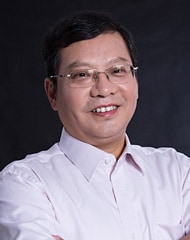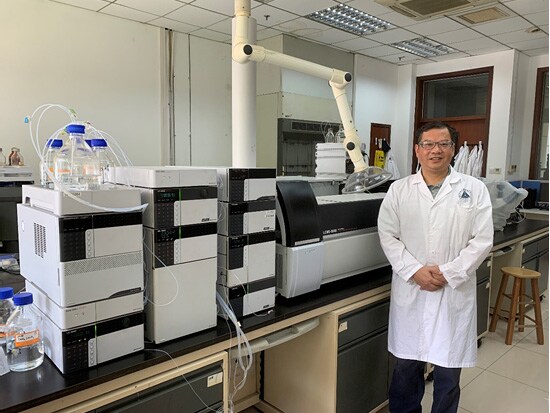Celebrating 50 Years of MS Innovation - User interviews November 2020
On the occasion of Shimadzu's 50th year of producing mass spectrometry instruments, we talk to researchers using Shimadzu MS instruments in their daily work and ask about their expectations for Shimadzu and the future of MS technology.

Guo Yinlong, Ph.D.
Shanghai Institute of Organic Chemistry, Chinese Academy of Sciences
Main field of study:
Ambient ionization sources for new organic chemistry MS devices;
Transition metal catalysts;
Detection of transient reaction intermediates;
Derivatizing agents for high-efficiency stable isotope labelling.
1. How did you become familiar with Shimadzu?
In 2011 we established an MS demo lab together with Shimadzu. In that lab we had an LCMS-8040 triple quad MS, an MDGC/GCMS-QP 2010 Plus and an AXIMA Performance MALDI TOF/TOF MS. From there we began our collaborative research with Shimadzu.
2. What is your main field of research, and how are you utilizing Shimadzu equipment?
Our research focusses on the capture and detection of organic reaction intermediates. We have developed a series of new atmospheric pressure ionization technologies, as well as systematic analysis methods and new MS detection methods in the fields of food safety, public safety and pharmaceutical research.
Shimadzu instruments play an important role in our research, and they have provided comprehensive technical support. At present we are involved in collaborative research on the high-speed identification of organic compounds using new ion mobility MS technology.
3. What are your reasons for choosing Shimadzu equipment?
In my analytical institute, we carry out analysis of many samples from day to day. There are a lot of different types of samples and their sources also vary. Compared to instruments from other vendors, the first Shimadzu GCMS I used had a wider dynamic mass range and greater applicability to different compounds. After that I used a Shimadzu LC-MS/MS and found that it had excellent scan speed as well as being very suitable for simultaneous analysis of a large number of compounds.
Thanks to these features of Shimadzu MS instruments, we are now able to carry out analyses of various different samples. Moreover, Shimadzu’s comprehensive after-sales service is of great help in supporting our research.
4. What trends are you seeing in your field with regards to the use of mass spectrometry?
My research involves the development of ambient ionization sources, the application of derivatizing agents for high-efficiency stable isotope labelling, and the capture and detection of organic reaction intermediates. I have been focussing on food and public safety issues for many years, and have developed methods for systematic analysis to meet escalating needs for research in these areas. Recently, I have also been carrying out research on transition metal catalysts. At present, in the field of organometallic chemistry, we are seeing the development of more methods using multiple technologies (LC, ICPMS, LC-MS/MS) and the construction of LCMS systems specifically for organometallic chemistry analysis.
5. What are your expectations for Shimadzu and for MS technology in general in the future?
Mass spectrometry is one of the most important technologies in modern analytical chemistry. As a company with a long history of manufacturing MS instruments, Shimadzu has a relatively comprehensive lineup of products. I hope that they will strengthen their development in the area of ion mobility technology and provide even more powerful research tools for lab workers.



